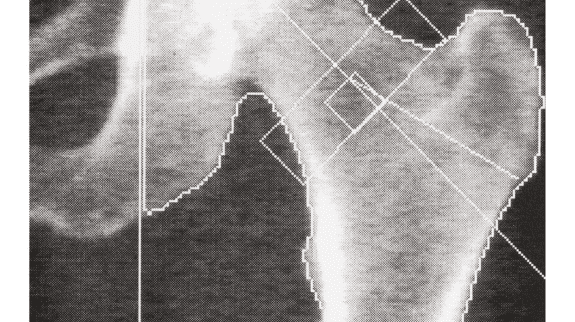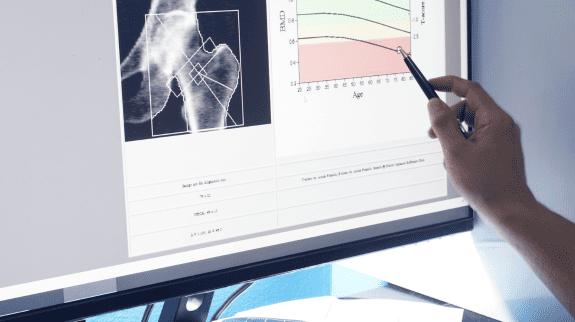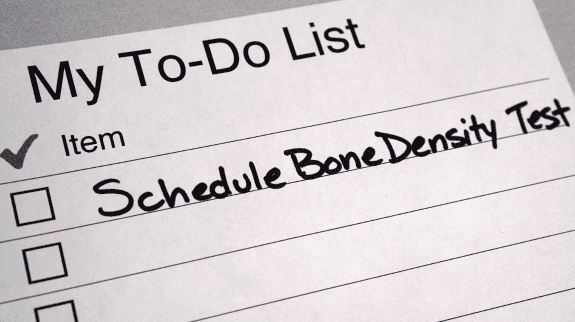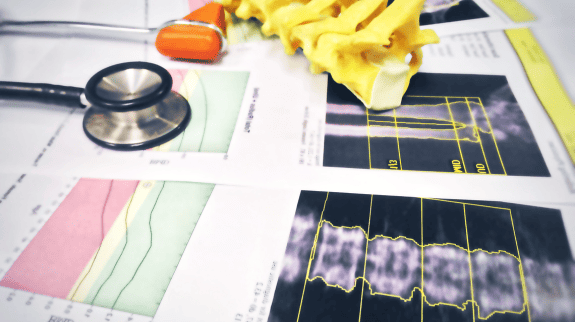Losing weight can be a challenging task, especially when it comes to preserving bone density. Many people worry that losing weight will also cause them to lose bone mass, putting them at greater risk for osteoporosis and other bone-related conditions. However, there are ways to lose weight without sacrificing bone density.
Weight loss occurs when the body burns more calories than it takes in, resulting in a calorie deficit. While this deficit can lead to weight loss, it can also cause the body to break down bone tissue to release calcium, which can lead to a loss of bone density. This is particularly true for people who lose weight rapidly or follow extreme diets.
Maintaining bone density is crucial for overall health and well-being in older adults, as it helps protect against fractures and other bone-related conditions. Thus, it is essential to lose weight in a way that preserves bone density. This can be achieved through a combination of weight-bearing exercises, a healthy diet, and lifestyle changes.
KEY TAKEAWAYS
- Losing weight can lead to a loss of bone density, but there are ways to lose weight without sacrificing bone health.
- Maintaining bone density is crucial for overall health and well-being, and it is essential to lose weight in a way that preserves bone density.
- A combination of weight-bearing exercises, a healthy diet, and lifestyle changes can help lose weight without losing bone density.
Understanding Weight Loss and Bone Density

Losing weight can be a challenging task, and it is essential to do it in a healthy way that doesn’t compromise bone density. Bone density is the measure of bone mineral density response or the amount of minerals, such as calcium and phosphorus, in bones. It is essential to maintain healthy bone density to prevent osteoporosis, a condition that causes bones to become brittle and fragile.
When people lose weight, they often lose both fat and muscle mass. However, it is possible to lose weight without either body mass index losing bone density. In fact, losing weight can even improve bone density in some cases.
To understand how exercise induced weight loss really affects bone density, it is also good to know that bones are living tissues that are constantly being broken down and rebuilt. This process is called bone remodelling, and it is regulated by hormones and other factors. When bones are under stress, such as during weight-bearing exercises, they become stronger and denser.
When people lose weight, their bones may not be under as much stress, which can lead to a decrease in bone density.
To maintain healthy bone density while losing weight, it is important to focus on a balanced diet that includes adequate amounts of calcium, vitamin D, and other essential nutrients. Resistance training exercises, such as weightlifting, can also help maintain bone density by putting stress on bones and promoting bone remodelling.
Importance of Maintaining Bone Density While Losing Weight

When it comes to losing weight, many people focus solely on the number on the scale, without considering the impact it can have on their bone health. However, maintaining bone density is crucial, as it helps to prevent osteoporosis, a condition that weakens bones and makes them more prone to fractures.
Studies have shown that weight loss can lead to a decrease in bone density, especially in postmenopausal women. This is because fat cells produce estrogen, which helps to maintain bone density. As a result, when fat cells decrease, estrogen levels also decrease, leading to bone and dietary weight loss alone.
However, this doesn’t mean that weight loss is bad for bone health. In fact, losing weight can help to reduce the risk of other health problems such as heart disease, type 2 diabetes, and high blood pressure. The key is to lose weight in a way that doesn’t compromise bone health.
One way to do this is to ensure that weight loss is gradual and not too rapid. Rapid weight loss can lead to a greater loss of bone density, whereas a slower weight loss allows the body to adjust and maintain bone health.
Another important factor is to consume enough calcium and vitamin D, which are essential for bone health. Calcium helps to build and maintain bone density, while vitamin D helps the body to absorb calcium. Good sources of calcium include dairy products, leafy green vegetables, and fortified foods such as cereals and orange juice. Vitamin D can be obtained from sunlight, fatty fish, and fortified foods such as milk and cereal.
In addition, resistance exercise can help to maintain bone density while losing weight. This includes weightlifting, bodyweight exercises, and resistance band exercises. Resistance exercise helps to stimulate bone growth and maintain bone density, especially in postmenopausal women.
Methods to Lose Weight Without Losing Bone Density

This section will discuss two primary methods to lose weight without losing bone density: dietary changes and physical activity and exercise.
Dietary Changes
One of the most effective ways to lose weight without losing bone density is to make dietary changes. Here are some dietary changes that can help:
- Increase calcium and vitamin D intake: Calcium and vitamin D are essential nutrients for bone health. Increasing their intake can help maintain bone density while losing weight. Foods rich in calcium include dairy products, leafy greens, and fortified foods. Vitamin D can be obtained through sunlight exposure and fortified foods, such as milk and cereal.
- Consume adequate protein: Protein is important for bone health and muscle maintenance. Consuming adequate protein can help prevent muscle loss during weight loss. Good sources of protein include lean meats, poultry, fish, beans, and nuts.
- Limit processed foods and added sugars: Processed foods and added sugars can contribute to weight gain and negatively impact bone health. Limiting their intake can promote weight loss and improve overall health.
- Consider a Mediterranean-style diet: The Mediterranean-style diet emphasizes whole foods, healthy fats, and lean protein. It has been shown to promote weight loss and improve bone health.
Physical Activity and Exercise
Physical activity and exercise are essential components of weight loss and bone health. Here are some ways to incorporate physical activity and exercise into a weight loss plan without negatively impacting bone health:
- Incorporate weight-bearing exercises: Weight-bearing exercises, such as walking, running, and weightlifting, can help maintain bone density during weight loss.
- Include resistance training: Resistance training, such as lifting weights or using resistance bands, can help maintain muscle mass during weight loss.
- Aim for at least 150 minutes of moderate-intensity aerobic exercise per week: Moderate-intensity aerobic exercise, such as brisk walking or cycling, can promote weight loss and improve overall health.
- Consult with a healthcare professional: Before starting any new exercise program, it is important to consult with a healthcare professional to ensure it is safe and appropriate for individual needs.
By making dietary changes and incorporating physical activity and exercise, it is possible to lose weight without losing bone density. These methods promote overall health and can contribute to long-term weight loss success.
Role of Supplements in Weight and Bone Health

Supplements can play a role in supporting weight loss efforts while also promoting bone health. However, it’s important to note that supplements should not be used as a replacement for a healthy diet and regular exercise.
One supplement that may be beneficial for both weight loss and bone health is calcium. Calcium is a mineral that is essential for strong bones, and it may also play a role in weight management. Studies have shown that increasing calcium intake may help to reduce body weight and fat mass in overweight individuals.
Vitamin D is another important nutrient for bone health, as it helps the body to absorb calcium. Some studies have also suggested that vitamin D may play a role in weight management, although more research is needed in this area.
In addition to calcium and vitamin D, other supplements that may be beneficial for weight and bone health include:
- Protein supplements: Protein is important for building and maintaining muscle mass, which can help to support weight loss efforts. It can also help to support bone health by providing the body with the amino acids needed to build and repair bone tissue.
Also read: The Best Protein Powder for Women in 2023
- Omega-3 fatty acids: These healthy fats may help to reduce inflammation in the body, which can be beneficial for both weight and bone health.
- Magnesium: This mineral is important for bone health, and it may also play a role in regulating blood sugar levels and supporting healthy weight management.
Also read: Top 10 Foods with High Magnesium
It’s important to talk to a healthcare provider before starting any new supplement regimen, as some supplements may interact with medications or have other potential side effects.
Monitoring Progress and Adjusting Strategies

Monitoring progress is an essential part of any weight loss journey. It helps individuals to stay motivated, track their progress, and adjust their strategies accordingly. There are several ways to monitor progress, including:
- Weighing regularly: Weighing once a week or every other week can help individuals track their weight loss progress. However, it is important to remember that weight can fluctuate due to various factors, such as water retention and menstrual cycles. Therefore, it is essential to focus on long-term trends rather than day-to-day changes.
- Taking measurements: Taking measurements of different body parts, such as waist, hips, chest, abs, arms, and thighs, can provide a more accurate picture of progress than weight alone. It can help individuals to track changes in body composition and identify areas that need more attention.
- Tracking body fat percentage: Body fat percentage is a more accurate indicator of progress than weight alone. There are several ways to measure body fat, including bioelectrical impedance scales, calipers, DEXA (dual-energy X-ray absorptiometry), and hydrostatic weighing. However, it is important to note that these methods can be expensive and may not be accessible to everyone.
- Keeping a food diary: Keeping a food diary can help individuals track their calorie intake and identify areas where they can make healthier choices. It can also help them to identify triggers for overeating and develop strategies to overcome them.
Conclusion

Losing weight without losing bone and bone mineral density can be a tricky balance, but it is possible. A higher-protein diet that emphasizes lean meats and low-fat dairy foods as sources of protein and calcium can mean weight loss without bone loss. It is important to note that weight reduction will decrease bone mass and mineral density, but this varies by the individual’s age, gender, and adiposity.
Dietary modifications, exercise, and medications have been shown to attenuate the very low bone mass loss associated with weight reduction. In order to notice changes in bone density, cardiovascular workouts should involve weight-bearing. Walking, jogging, and dancing are more effective than swimming and biking because they are weight-bearing exercises.
It is also important to note that the most aggressive weight loss treatments like bariatric surgery are associated with the greatest bone loss and a higher chance of fractures. Therefore, it is recommended to opt for more natural weight loss methods like a healthy diet and regular exercise.
In summary, losing weight without losing bone density is possible with a balanced approach. A higher-protein diet, weight-bearing exercise, and natural weight loss methods can help reduce the risk of bone loss while achieving weight loss goals. It is important to consult with a healthcare professional before starting any weight loss program to ensure safety and effectiveness.
Frequently Asked Questions
How can I lose weight while maintaining bone density?
Losing weight while maintaining bone density can be achieved by following a high-protein diet that emphasizes lean meats and low-fat dairy foods as sources of protein and calcium. A study published in ScienceDaily found that a higher-protein diet can mean weight loss without bone loss.
Also read: Carnivore Diet – What Is It?
What are some exercises that can help me lose weight without losing bone density?
Weight-bearing exercises are excellent for maintaining bone density while losing weight. These exercises force the body to work against gravity and include activities like hiking, jogging, or climbing stairs. Swimming or using a stationary bike is not considered a weight-bearing exercise.
What are some foods that can help me lose weight without affecting my bone density?
Calcium and vitamin D are essential for maintaining bone density. Foods rich in calcium include dairy products, dark leafy greens, and fortified cereals. Foods rich in vitamin D include fatty fish, egg yolks, and fortified foods. Additionally, consuming a diet high in protein can help with weight loss without affecting bone density.
Is it safe to lose weight if I have osteoporosis?
It is safe to lose weight if you have osteoporosis, but it is essential to do so under the guidance of a healthcare professional. Rapid weight loss can lead to bone loss, and low bone density can increase the risk of fractures. It is important to maintain a healthy diet and engage in weight-bearing exercises to maintain bone density while losing weight.
Can I regain lost bone density while losing weight?
It is possible to regain lost bone density while losing weight, but it can take time. Engaging in weight-bearing exercises, consuming a diet rich in calcium and vitamin D, and taking supplements as recommended by a healthcare professional can help with bone density. It is essential to maintain a healthy and balanced diet to support the body’s natural healing process.
What are some lifestyle changes I can make to lose weight without losing bone density?
In addition to consuming a high-protein diet and engaging in weight-bearing exercises, there are several lifestyle changes that can aid in weight loss without losing bone density. These include reducing alcohol consumption, quitting smoking, and getting enough sleep. It is also essential to manage stress and maintain a positive outlook on weight loss and overall health.

